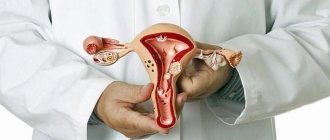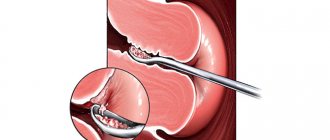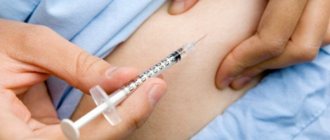How soon after pregnancy loss can you start having sex? This question worries many women of reproductive age, given that more than 20 percent of pregnancies end in miscarriage, and one in a hundred ends in stillbirth. However, there is no standard or clear answer to this question. Doctors usually recommend that patients wait until they are ready to conceive again. But this readiness of the woman and her partner depends on many factors - both physiological and emotional.
“From a medical and practical point of view, the first thing we need to do is make sure that there is no longer any pregnancy or signs of pregnancy, the cervix is completely closed, and the risks of infection are minimal,” says Zev Williams, head of the department of reproductive endocrinology and infertility, assistant professor of obstetrics and gynecology at Columbia University Irving Medical Center. “It all depends on the specific period at which the woman lost her pregnancy and how quickly her body recovers,” he explains.
But the romantic mood and readiness of the couple is the other side of the issue.
Emotional barriers are an important factor: women may feel reluctant to become intimate while still grieving their loss. A miscarriage can also change a woman's relationship with her body, so that the way she thinks about sex can also be transformed. If you think this is hard to understand, you don't think so. I'm a psychologist specializing in reproductive and maternal mental health, and I didn't fully understand how difficult returning to sex after loss could be until I experienced a second-trimester miscarriage myself. Then everything became crystal clear: there is no answer that suits everyone.
“There is no protocol that dictates how to talk to couples about returning to sex after loss or what to expect. Typically, we don't discuss sex with patients unless they initiate the conversation,” explains Jessica Schneider, an obstetrician and gynecologist in Los Angeles. And he continues: “There are studies that indicate a safe time frame for resuming sexual activity after a miscarriage, but there is no scientific data on how it affects sexual function and satisfaction.” But the fact remains that sexual function and satisfaction can change.
I spoke to several women who have experienced pregnancy loss about their experiences of returning to sexual activity.
Some women, like Ash, 36, return to sex almost immediately. According to her, after experiencing a stillbirth, she decided to turn to sex as a healing practice. “It was a way to feel strong in my body. I felt like my body had failed me and sex became an opportunity to reclaim my confidence and power,” she explains. But there was one thing: she didn’t want another pregnancy. “It’s better to have sex in a way that doesn’t lead to pregnancy,” she points out.
Trying to get pregnant after a miscarriage is a sensitive topic, both medically and emotionally. The official position of the World Health Organization is to wait six months before starting a new round of attempts. Recent research, however, suggests that earlier intercourse does not have a negative impact on future pregnancies and may actually contribute to success.
“The doctor told us that we can start having sex when we feel comfortable,” says Maria, 26, who has suffered four miscarriages. “Going back to sex made me nervous. I think it was because I was simultaneously afraid that I would get pregnant and lose the baby again, and that I wouldn't be able to get pregnant. Mentally it was very difficult,” she admits.
This internal conflict is understandable, but the chances of success are still high: up to 85 percent of women who have experienced pregnancy loss, and 75 percent of women who have experienced multiple losses, can go on to have a healthy pregnancy.
Shame and guilt after a loss become full participants in the process and can create problems where there were none before. Hanan, 27, says she felt the urge to have sex with her husband almost immediately after experiencing the stillbirth. The doctor told her to wait six weeks, and all this time she felt aroused and engaged in various sexual practices with her husband, except for penetrative sex itself. But when they finally returned to penetrative sex, she was unprepared for the emotions that washed over her. “After the first time I cried. I felt guilty. My body wanted it, but my mind didn’t. I felt it was selfish and immoral to abstain during the grieving period,” she says.
This type of thinking becomes especially difficult for women who are actively trying to conceive again. “I didn’t want to go back to sex after the loss. But at the same time, I wanted to get pregnant again. And my vagina has become a constant reminder of my loss,” Maggie, 32, shares her story.
Some women note that they were offended and angry at their bodies, considering them to be to blame for what happened. “After the miscarriage, I didn’t have sex for over a year. I could not. The fact that my body failed me influenced what happened to my sexuality. I carried the child more emotionally than physically,” notes 27-year-old Zaki.
And while a 2015 survey found that 47 percent of respondents felt guilty after a miscarriage, and three-quarters believed it could have been caused by something they did, statistics tell us that chromosomal abnormalities account for about 60 percentage of miscarriages. Pregnancy loss cannot be prevented.
If you've been trying to conceive for a long time and then experience a loss, sex can be especially scary—even off-putting.
“After my first miscarriage, we had sex just to conceive. It began to feel like a task. This attitude was exacerbated by a second miscarriage and killed all desire in me,” says 30-year-old Gina, who went through the death of a baby and two pregnancy losses.
Sonali, 33, who has lost four pregnancies, admits that it was hard for her to even look at the bed where everything happened. “Sex in a bed where you conceived children that you later lost is a huge trigger,” she explains.
“Sometimes I think about how pregnant I would be now, and that I wouldn’t be able to have sex in this position. And I feel guilty for the fact that I feel good, even though I should have been in my seventh month and feeling awkward and uncomfortable,” Maria shares her thoughts.
But pregnancy loss can also have a positive impact on a woman's sex life. Zaki says that since her miscarriage she has become more confident and assertive about sex. “I listen to my body. If I don't do this, it will simply hurt me. I’m now much more confident in what I really want,” she notes.
The loss also brought Maggie closer to her husband: “For the first time after the miscarriage, I felt like I was on a desert island. The first time we had penetrative sex, I felt like we were finally reunited."
Having and enjoying sex is only a matter of personal readiness, which is what I always tell my patients. It's normal to grieve and feel sexual desire at the same time. You don't have to “leave everything behind” to have fun.
Scraping - what is it?
The procedure of curettage of the walls of the uterus is one of the methods of abortion and involves the removal of the fertilized egg with the placenta and the surface layer of the endometrium, carried out under general anesthesia. Such a surgical intervention cannot be called complex, but it is a very serious procedure, as a result of which certain complications may arise.
Indications for the procedure
Curettage is prescribed after a thorough gynecological examination. Additional analyzes and studies are also required.
Indications for which curettage is prescribed for therapeutic purposes:
- abortion during pregnancy up to 12 weeks, including medical abortion, as a result of which the fetus did not completely exit the uterus;
- frozen pregnancy;
- complications arising during pregnancy or childbirth in the form of placental abruption;
- presence of cervical pathologies;
- incomplete spontaneous miscarriage;
- endometriosis (if the thickness of the endometrium is increased, that is, hyperplasia is present), adhesions inside the uterus.
For diagnostic purposes, the procedure is prescribed:
- for the diagnosis of tumors and polyps;
- for bleeding between menstruation and during menopause, cycle disorders, prolonged heavy periods;
- when pregnancy does not occur for no apparent reason.
The essence of the operation
When performing curettage, the top layer of the uterine mucosa is removed. The operation is performed as follows:
- anesthesia is administered;
- the doctor inserts a speculum into the vagina, then fixes the cervix;
- using special instruments, the cervical canal is expanded;
- a curette is inserted and curettage is performed.
To diagnose female diseases, regular curettage or a procedure with primary cleansing of the cervical canal and only then cleansing the walls of the uterus can be performed.
The time it takes a woman’s body to recover depends on the type of surgery.
Is cleaning necessary after a miscarriage?
Cleaning is a curettage of the uterine cavity, which is carried out under general anesthesia. Many compare it to an abortion, but unlike it, curettage is done in order to remove the remnants of the fertilized egg that was not released during the miscarriage. The absence of such intervention risks inflammation, infection of the uterus, bleeding, and sepsis.
Curettage after a miscarriage is not always performed. Indications for it are the results of ultrasound. If there are particles of the placenta or foreign inclusions left in the uterus, gynecological intervention cannot be avoided. The procedure should not be delayed, since complications after a spontaneous abortion develop in a matter of hours.
Curettage is usually carried out for a period of more than 6-7 weeks. The manipulations are performed in a hospital under intravenous anesthesia, their duration is about 15-30 minutes. The doctor first dilates the cervix and then uses a curette to perform the main procedure.
The resulting material is sent for histological examination. The woman is left under observation for 1-2 days and then discharged for outpatient treatment.
For a month after the procedure, you should not use tampons, wear weights, put stress on the abdominal area, or go to the sauna.
What complications can there be?
Curettage, like any other operation, can lead to various complications. For this reason, it is very important that the woman follows all the doctor’s recommendations after surgery.
What could be the consequences? Experts identify the following complications:
- The entry of microbes into the uterine cavity that can provoke the development of endometritis (an inflammatory process of the mucous membrane of a muscular organ). The disease is accompanied by increased body temperature, acute pain in the lower abdomen, etc.
- The accumulation of bloody clots (hematometra) in the uterine cavity, which can provoke further development of infection. Accompanied by symptoms in the form of fever, sudden cessation of discharge, and general weakness.
- Inflammatory process after curettage, caused by violations of the requirements for the postoperative period.
- Formation of adhesions that can lead to infertility.
To exclude the development of these complications, you should consult a doctor if you have any alarming symptoms. First of all, this is heavy bleeding, an increase in temperature to 38 degrees or higher, as well as severe pain in the abdominal area.
Precautionary methods when curettage of the uterine cavity
To avoid undesirable consequences during surgery, the patient must be examined initially. They take blood for clotting and do a general analysis. A vaginal smear helps identify infectious diseases of the patient’s genital organs. In the operating room, the anesthesiologist talks with the woman and identifies possible allergic reactions to pain medications. If during the preliminary examination no contraindications for the operation were found, the woman is given anesthesia and the surgeon begins his work. It is very important to maintain sterile conditions throughout the entire operation. After a successful curettage, a period of rehabilitation begins. During this period, the woman herself should worry about her safety. After the operation, it is prohibited to use cotton swabs and hygienic chemicals for the genitals. And an important precaution is sexual relations.
Sex after scraping
The period of sexual abstinence after surgery is determined only by the attending physician and only after examining the patient. The period of recovery of the genital organs depends on the reason for curettage, the health of the patient and the quality of the surgical intervention. On average, after curettage you can have sex, you can have sex only after 2 weeks. This period is due to the need to restore the mucous membrane of the uterus and its cervix. If the mucosa is not restored, then there is a huge risk of unnecessary post-operative infection. Even if you are confident in your sexual partner, you still need to take care and refrain from having sex. There are many diseases of the genital organs that occur in a latent form and do not pose a danger to a healthy body. In the case of a weakened uterine cavity after surgery, the consequences of the above-mentioned infections can be dangerous, and in some cases can even become irreversible. In addition to infection, sex can lead to microtrauma of the vagina. Microtraumas are dangerous because severe bleeding can occur.
After restoring sexual relations, a woman may experience pain, burning, dryness or other types of discomfort. As a rule, these symptoms are considered acceptable and go away very quickly. If you cannot get rid of the unpleasant sensations, then you need to visit your gynecologist. After examination on the chair and based on the results of ultrasound diagnostics, the doctor will give you further recommendations.
To summarize all of the above, I would like to once again remind you of the enormous role of the surgeon in the curettage procedure. The more experienced the surgeon, the less likely there are undesirable consequences after surgery. The body's lack of ability to become pregnant and carry a baby does not in any way threaten a woman's life. But reproductive function is a very important indicator for the happiness of her family. If problems of such a delicate nature arise, then the doors of our clinic are always open for you. The many years of experience and professional development of our medical staff are supported by all the technical base necessary for the diagnosis and treatment of diseases. Our laboratories are constantly replenished with all the reagents necessary for analysis.
Intimate life after curettage
Taking a bath, visiting the sauna and bathhouse, physical activity and using vaginal tampons is prohibited for a woman after the curettage procedure. You also can't have sex. For the wounds to heal, time must pass, so you will have to give up intimate life.
Why can't you have sex right away?
The body needs recovery after any operation. If we are talking about surgery on the uterus, it is quite natural that direct impact on the genitals in the form of sex in the first days is contraindicated.
Sex immediately after surgery will not give a woman pleasure, but will only cause pain. There can be no talk of any orgasm. In this case, there is a huge risk of infection entering the uterus. It is important that after surgery, the natural microflora in the woman’s vagina is preserved, then the tissues will heal more quickly.
Optimal timing for initiation of sexual activity after surgery
Many doctors recommend starting intimate life no earlier than 2 weeks after curettage. However, everything is individual, so it is possible to say exactly how many days after a woman can have sexual contact with a man only after a thorough examination by a gynecologist. The main condition is the absence of blood, clots and tissue in the uterine cavity. It takes 7 to 10 days for this to happen.
However, there are situations when the ban on sexual relations persists for up to 1-1.5 months. It should also be taken into account that fertilization can occur within 14 days after cleaning. However, a woman is able to bear a healthy baby after six months. For this reason, even if the gynecologist’s ban on having sex after the procedure is less than 2 weeks, partners should use a condom to avoid unpleasant consequences.
Features of sexual relations
When having sex after scraping, you need to avoid active movements. Otherwise, the fabric may be damaged. It is recommended to use a condom, and if the vagina is dry, use lubricants. To avoid hormonal imbalances, you should abandon other means of protection other than a condom.
During sex, a woman should pay attention to her feelings. The first few months after cleansing, sexual intercourse will be accompanied by unpleasant sensations. This is considered normal, but severe pain and prolonged bleeding are a sign of problems. In this case, you need to consult a gynecologist.
Recovery period after spontaneous abortion
The rehabilitation time largely depends on the duration of pregnancy and possible complications after a miscarriage or medical abortion. The main therapeutic measures that are indicated in the hospital and on an outpatient basis:
- antibiotic therapy for 5-7 days,
- medications with oxytocin, administered intramuscularly or intravenously to improve uterine contractility,
- physiotherapeutic procedures,
- you should engage in physical exercises that help cleanse the uterus of clots and increase blood supply to the pelvic organs,
- you need to take vitamins, cyanocobalamin (vitamin B12), probiotics in tablets or powder,
- sexual rest and diet: lean meat, vegetables, vitamin-rich greens, fruits, cereals.
In the early stages
After a miscarriage in the early stages, gynecologists recommend hemostatic tablets (Vikasol, Dicynon), antibiotics, and vitamins to the woman. It is important to monitor how the cycle is restored. The first menstruation after drug therapy and cleansing may come with a slight delay. Their duration should not be more than 7 days. The appearance of bloody discharge between menstruation and pain in the lower abdomen is a signal to visit a doctor.
Based on the results of hysteroscopy, the doctor will understand what to do after a miscarriage and prescribe therapy. These could be Duphaston, Utrozhestan as hormonal pills after a miscarriage, myomectomy, therapy for chronic diseases. Only after complete recovery can you plan a new pregnancy.
READ ALSO: How to properly stop taking Duphaston during pregnancy?
In the later stages
Physiological recovery from the moment of late miscarriage takes from 3 to 6 months. After cleaning and drug support in the hospital, outpatient treatment is indicated. During this period, hormonal levels normalize and mental state stabilizes. In some cases, consultation with a psychologist and treatment of the reasons that caused the miscarriage are necessary. Physiotherapy is useful: the help of a magnetic field, light, ultrasound.
Doctors recommend not to rush into a new pregnancy and undergo a full examination, eliminating the causes that could again lead to tragic consequences.
Is it possible to have sex immediately after curettage?
You should not have sex on the same day as the cleansing. And it doesn’t matter for what purpose it was performed - for diagnosis, termination of pregnancy, or removal of the fetus during a miscarriage. During curettage, the doctor removes the top layer of the mucous membrane of the cervix, which injures the organ. And the period of its recovery takes time. If you have sex on the first day, even more trauma to the uterus will occur. The wound will not heal well, which may result in scarring. And this is dangerous for a woman, as it can lead to infertility.
Why not?
During the procedure, various tissue injuries may occur. For example, to diagnose some diseases, partial curettage is required to collect diagnostic material. After such an intervention, the patient should not have sex for about two weeks. But if a woman undergoes an abortion, then cleaning involves removing the fetus and mucous membrane. This procedure is very traumatic, and tissue healing is slow. Therefore, intimate relationships for a long period of time are not recommended at this time.
That is, sex is contraindicated for women until the uterus is completely restored. In any case, even if you ignore the doctor’s recommendations and start making love earlier, the patient will not experience pleasant sensations. Therefore, it is better to wait until the organ has healed completely.
Resumption of sexual activity
When can you have sex after a uterine curettage procedure? This should be addressed by the attending physician after examining the patient. The uterus must be cleared of blood, tissue particles, and clots. And this requires at least 7-10 days. But the average period is about 2 weeks, although in some cases the doctor sets limits for 1-1.5 months.
You must use a condom. This will not only avoid infection of the delicate mucous membrane, but will also prevent unwanted pregnancy. Fertilization becomes possible approximately 2 weeks after the procedure.
Some women are reluctant to resume sexual activity. Especially if the curettage was associated with the loss of a child. For them, sex is an opportunity to conceive and lose a baby again. This is already a psychological problem, and to solve it, a consultation with a gynecologist is required.
When can I return to sexual activity?
Many patients are embarrassed to ask their doctor if they can have sex and how long abstinence should be. Most often, it is allowed to resume intimate life 2-3 weeks after laparoscopic surgery. The main rule is that a woman should not experience any unpleasant sensations or discomfort during sexual intercourse. The doctor decides when you can have sex after laparoscopy based on the patient's individual situation.
The question of the timing of resumption of sexual activity after laparoscopy is decided individually
If surgery was performed on the fallopian tubes, then it is possible to return to sexual life quite soon. Some patients say that they were allowed to return to normal life literally immediately after the operation. Moreover, in this case, women who had sex a week or two after laparoscopy recovered faster than those ladies who waited a month or more.
During sexual intercourse you should not experience discomfort or pain!
If stitches were placed during the operation, especially on the genitals, then it is better not to risk it and wait until they are removed. Those patients who have had sex up to this point can themselves provoke bleeding from postoperative wounds or sutures coming apart.
Why in some cases are women recommended to begin sexual activity earlier than after 2 weeks? The fact is that the orgasm obtained during sexual intercourse has a positive effect on the normalization of muscle tone, improves their functioning, helping to recover after surgery without loss of quality of life. Frictions performed by a man improve tissue elasticity and blood circulation in the genital organs, accelerating healing.
Many people are concerned about the need for protection. This is decided individually with each patient. For example, after uterine surgery, you cannot plan a pregnancy right away. Sufficient time must pass for the organ to recover and final scars to form.
The timing of pregnancy planning after laparoscopy depends on the reason for which the operation was performed.
In general, we can say that there is no single and precise recommendation on when you can have sex after laparoscopy. Some doctors insist that you need to wait about a month, some advise not to put it off for too long. A woman should focus primarily on her feelings. If nothing bothers you, then why give up pleasure? Moreover, sex helps speed up the recovery of the genital organs after surgery.
Consequences and complications
After cleaning the uterus, you need to wait some time before restoring sexual intercourse. Otherwise, the woman may experience some complications:
- There is a risk of postoperative infection. The uterus is very sensitive at this time, as its local immunity decreases. Even if a woman is confident in her man, it is better to abstain. After all, pathogenic microorganisms can live on the penis, which do not bring discomfort to a man, and which he does not even know about. And if an infection is introduced into the uterine cavity, inflammation will begin, the treatment of which requires taking antibiotic drugs. And because of them, the intestinal microflora is disrupted, which leads to a decrease in appetite and stool disturbances.
- In addition, premature sex can cause microtrauma to the vagina. They can cause heavy bleeding. In this case, injuries can heal slowly, causing the patient discomfort during urination.
- Injury to the mucous membrane of the cervix. As a result, the healing process slows down. Therefore, if you start having sex earlier, the wound may become larger and bleed. In this case, sexual relations may be prohibited for an even longer period of time.
After restoring sexual activity, a woman may experience some discomfort during the process. As a rule, there is increased dryness, pain and burning. To prevent this, you can use special vaginal lubricants, but they should not contain components that cause a slight burning sensation. Over time, these symptoms should subside. But if this does not happen, you need to consult your gynecologist. This condition may be associated with an inflammatory process. Additional treatment may be required.
Thus, curettage of the uterus is a rather painful procedure, after which sexual rest is necessary. It is also not recommended for a woman to do vaginal douching. Before resuming sexual activity, you should definitely consult a doctor.
Bleeding
Curettage or curettage is the complete removal of the upper (functional) layer of the endometrium lining the inner surface of the uterus. Its neck, which connects the internal cavity with the vagina, is also cleaned. In fact, the entire surface of the organ, including the cervical canal, is a continuous bleeding wound. And this is one of the reasons why sex life after cleansing will be prohibited.
Curettage is carried out using special gynecological instruments - a curette. Using its sharpened edges, the physician completely removes the existing layer of mucous membrane. The body perceives the manipulation as a serious injury and responds to it with severe bleeding. Do not forget that the endometrium has many blood vessels that rupture during curettage.
Bleeding is another good reason for completely refusing sexual activity, including protected sex.
Bloody discharge that appears after curettage and prohibits sexual activity is practically no different from menstrual discharge. Doctors consider sex during menstrual bleeding unacceptable and explain this by the following factors.
- The main reason is infection. This applies to both sexual partners.
- The next danger of sexual activity (sex) against the background of bleeding lies in the discharge itself. Blood itself is not dangerous, but only if it is not retained inside the vagina and can flow freely. If a woman after the curettage procedure is not too concerned about proper hygiene, then stagnant blood becomes a favorable environment for the proliferation of pathological microflora.
- After curettage, the cervix remains partially open, which makes the wound surface even more vulnerable. A sexually transmitted infection that gets into the vagina during sex can penetrate the uterine cavity without any problems and cause serious inflammation.
- The back-and-forth movements that a man makes during sex contribute to the reverse flow of blood and its reflux not only into the uterus, but also into the fallopian tubes. That is why early sexual activity after curettage can cause the development of endometriosis. The pathology is characterized by excessively active growth of the endometrium and its extension beyond the organ cavity. The disease very often causes infertility and bleeding of varying intensity.
- The uterus, injured during curettage, increases slightly in size and movements during sex cause the woman severe pain and discomfort. Sexual life does not bring pleasure, which negatively affects the psychological state.
- Sexual activity (sex) after curettage can cause pathological uterine bleeding. The organ is toned, its muscles tense, and when the moment of orgasm occurs, a sharp relaxation occurs. As a result, the volume of released blood increases significantly.
- When ejaculate hits the surface of the cervix during unprotected sex after curettage, the muscles relax and the cervical canal expands, which facilitates the entry of pathogenic microorganisms into the uterine cavity and prevents its contraction after the intervention. This happens due to the relaxing effect of prostaglandins contained in sperm.
These are the main reasons why doctors prohibit sexual activity after curettage. Sexual activity is allowed to begin only after examination by a physician, who will confirm the completion of the healing process. As a rule, restoration of the endometrium and healing of the wound lasts one menstrual cycle.
When can you have sex after curettage?
Cleaning the cavity of the reproductive organ can be carried out for various reasons. In the process of performing it, a hysteroscope (a special device equipped with a camera) or a regular curette is used. Regardless of how the procedure is performed, sex after curettage is prohibited for a certain time. This is due to the increased risk of infection entering the organ cavity.
Before performing curettage, a woman needs to find out when she can have intimate life after curettage. Thanks to this, complications will be avoided.
How is curettage performed?
The uterine cavity is lined with endometrium. This layer grows during the menstrual cycle and is rejected in the absence of pregnancy. At this moment, women's periods begin. When performing a uterine cleansing procedure, the endometrium is completely removed.
During the operation, ovarian cysts, polyps and fibroids can also be excised. Indications for its implementation are endometriosis and ademiosis. These pathologies arise due to disruption of the ovaries and strong hormonal fluctuations.
Most often, a hysteroscopy procedure is used to remove polyps and the mucous layer. This method has a number of advantages compared to conventional curettage. A hysteroscope is used during the operation. Thanks to this, the doctor has the opportunity to visually monitor the entire process and minimize damage to the deeper layers of the organ.
When can I return to sexual activity after laparoscopy?
Each patient is interested in the recovery period after surgery, what is allowed and what is absolutely not allowed. Including, sexual activity ceases for some time after laparoscopy, i.e. sexual rest is observed.
Undoubtedly, in comparison with laparotomy, this surgical technique is gentle, but even it requires certain restrictions. The recovery period is much shorter than after abdominal surgery.
During this period, it is still necessary to follow the recommendations of a nutrition and hygiene specialist.
Recovery after laparoscopy is much easier than after laparotomy
Indications and contraindications for laparoscopy
The main diseases for which surgery is indicated:
- Infertility.
- Identifying the cause of fallopian tube obstruction.
- Ectopic pregnancy.
- Uterine fibroids, endometriosis, ovarian and uterine cysts.
- Inflammatory diseases of the genital organs.
- Dysmenorrhea.
- Appendicitis.
Often, indications for laparoscopy are acute situations in which there is a danger to life and health.
Sometimes these conditions can be caused by surgical pathology that cannot be cured in any other way. For example, obstruction of the fallopian tubes can be caused by adhesions in the pelvis. Appendicitis and ectopic pregnancy are acute conditions that require immediate surgical intervention.
Appendicitis is successfully removed laparoscopically
Absolute contraindications include:
- Disturbances in the functioning of the blood coagulation system.
- Exacerbations of chronic diseases.
- Severe exhaustion.
- Diaphragm hernia.
- Acute infectious diseases.
- Hypertensive crisis.
Relative contraindications are:
- Oncological diseases of the uterus and appendages.
- Severe obesity.
- The size of the formations to be removed is too large.
- Adhesive process.
Menstruation after curettage
During the curettage process, the lining of the uterus is completely removed, immediately after which the gradual restoration of the mucous membranes begins. Accordingly, the date of the operation (cleaning) should be considered the first day of the cycle. The arrival of the regulator after cleaning is expected in about a month.
In some cases, bleeding appears with a slight delay. The cycle is fully restored within three months.
It is extremely important to monitor changes in menstrual patterns after surgery. Unusual color, increase in volume, uncharacteristic odor, itching of the vulva, pronounced pain - these symptoms indicate the possible development of complications. You should definitely tell your doctor about their appearance.
Complications after the procedure
After curettage, sexual activity is prohibited primarily because such actions can lead to serious complications. Among the consequences of curettage and removal of mucous tissue are the following:
- serious injuries to the cervical canal. Such problems are observed in case of careless actions of the doctor. If the tear turns out to be small, then no measures are taken; it heals on its own. If there are serious injuries, stitches are applied;
- perforation of the walls of the reproductive organ;
- spasm of the cervical canal and accumulation of blood in the uterine cavity;
- inflammation of the uterus;
- bleeding.
To avoid such complications, you must strictly adhere to medical recommendations in the postoperative period.
Intimate life: when to start
The doctor should name the exact dates when you can have sex after curettage. The purpose of curettage and the woman’s health condition are taken into account. As a rule, it is recommended to abstain from intimacy for two weeks. The endometrium is almost restored.
Sex at an earlier period can lead to infection in the organs of the reproductive system. Even if a woman is absolutely confident in the health of her sexual partner, at first she is still recommended to use barrier contraception. Thanks to this, the vaginal microflora will not be disturbed, and recovery will come much faster.
Intimacy after surgery often causes damage to the vaginal mucosa. There is also a risk of uterine bleeding. Pain during sex is also not uncommon.
If they are observed quite often, you need to undergo an ultrasound and examination by a gynecologist. It is possible that complications arose during the postoperative period.
Prevention
In order to prevent the development of complications, it is recommended to temporarily abstain from intimacy, and in the future use barrier contraception. Sexual rest is recommended because the risk of infection entering the reproductive organ during the recovery period increases significantly. In addition, the onset of uterine bleeding cannot be ruled out.
It is also extremely important to restore the normal microflora of the vagina, properly organize your diet, avoid excessive physical activity and monitor your health. If undesirable changes occur, you should immediately tell your doctor about them.
Cleaning the uterus is a serious operation, after which the body needs a lot of time to regenerate damaged tissue. Intimacy during the rehabilitation period temporarily becomes impossible. It is necessary to begin sexual activity only after the mucous membranes have been restored.
Curettage is a serious surgical operation that requires absolute sterility in the operating room and certain surgeon skills. Indications for this operation may vary. This is a therapeutic (medicinal) need or diagnosis of diseases. It may be necessary to cleanse to remove a frozen pregnancy from the uterine cavity. Sometimes curettage is performed to clean the uterine cavity from fetal remains after a spontaneous miscarriage.
Regardless of the reason for curettage, women are often afraid of postoperative reproductive dysfunction. How long after curettage can you have sex? How soon can you get pregnant? Will a woman be able to bear a child? Patients often ask these questions before surgery.
Other types of sex
After removal of cervical polyps, treatment of endometrial hyperplasia and carrying out abortive measures for several days, you need to abstain from any types of intimacy. This is due to the fact that when scraping the mucous membranes of the uterine cavity in the first days, serious complications are possible - and any stress (even pleasant) is strongly not recommended.
After a couple of days, oral and anal sex are allowed. The main thing is that the partner’s actions are careful and do not provoke the appearance of unpleasant sensations.
Pregnancy after surgery is not advisable during the first three months. Oral contraceptives are often prescribed during therapy. The duration of their use is at least 90 days. Due to this, conception does not occur during an unfavorable period.











